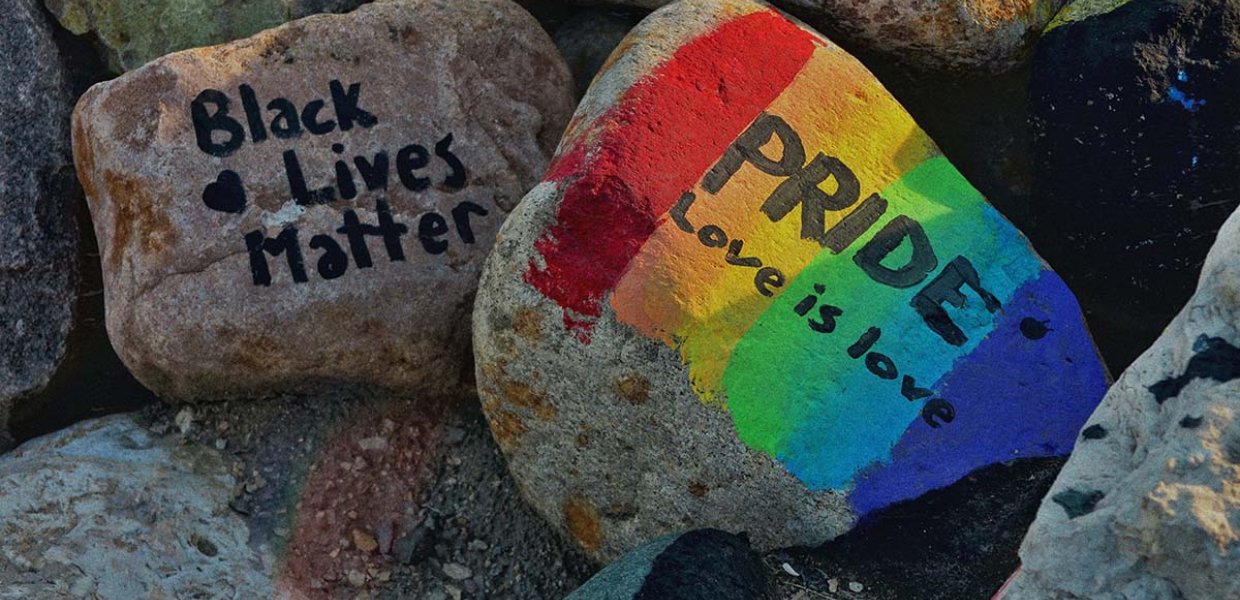With the social upheaval in 2020, the importance of brand purpose has never been greater. Purpose is a powerful tool that helps companies build deep consumer connections.
In a study conducted by Accenture, 62 percent of consumers stated their purchasing decisions are driven by a company's authenticity. Consumers have access to reliable information on how companies operate, produce products, and treat their employees. Increasingly, they are holding companies and brands to a much higher standard in terms of their positions on political and social issues.
According to Morning Consult, 66 percent of Gen Z shoppers say a brand's reaction to BLM influences their purchase. The Gen Z audience believes business plays a big part in shaping how the country responds to racism: 76 percent agree that companies should leverage their influence to demand action from government entities that can enact systematic change.
Consumers are skeptical about buying from fashion and beauty brands that don’t have a clear social purpose. Brands seeking to define the roles they play in wider society have responded in a variety of ways. While Nike has authentically spoken out in support of Black communities and racial equality (Colin Kaepernick), others like L’Oréal have simply jumped on the bandwagon out of necessity, leading to a backlash from a cynical public.
In 2017, L’Oréal terminated an endorsement contract with Black transgender model Munroe Bergdorf after she spoke out against racism following the Charlottesville rally. L’Oréal justified its decision by stating they “support diversity and tolerance towards all people,” and that Bergdorf’s comments were at odds with those values. Soon after, #BoycottLoreal trended on Twitter, as thousands criticized L’Oréal for using a woman of color as a source of revenue, yet not supporting her call to eradicate racism. L’Oréal, by canceling Bergdorf’s endorsement, was seen as reaffirming the power and existence of white supremacy. Until the Black community can openly speak about the racism to which they are subjected without the fear of being fired, there is a lot of work to be done systematically, and within the fashion and beauty industry.
While brands likely do not make intentionally racist decisions, mistakes are made. Dove, known for redefining beauty standards and body positivity, also dropped a questionable Facebook ad in 2017. The ad depicted a Black woman removing her brown shirt, revealing a white woman with a light shirt. Shortly after the release of the ad, social media users evoked a racist trope: a “dirty” Black person cleansed into whiteness. Although these brands released apologies, people wonder how these ads and campaigns with seemingly racist overtones made it through multiple layers of review. The answer may be a lack of diversity in positions of power, decision making, and leadership. There aren’t enough people in the room who have been on the receiving end of insensitive remarks about ethnicity or race.
Thousands of fashion and beauty brands have released statements about BLM, whether on social media pages or websites. But it is equally if not more important to ensure a brand is taking concrete action and creating a measurable impact. The fashion and beauty industries need to commit to action. Commit to hiring more Black people in positions of visibility, because diversity isn’t just having a campaign featuring a Black model. They need to begin using their resources to reform laws that affect Black lives.
Levi Strauss & Co., a progressive company known for their sustainability, equality, and inclusivity efforts, acknowledged that they aren’t hiring enough Black employees, and have too few in positions of power. In an attempt at transparency and the progress they want to make moving forward, they released data on demographic representation in a diversity and inclusion report, revealing its leadership team is 73 percent white, 16 percent Asian, 6 percent Latinx. Black employees represent 2 percent of the leadership workforce. Its CEO and president, Chip Bergh, committed to publishing annual updates on employee demographics and diversity statistics. This attaches a face to the program, showing that they are serious about creating actual change.
Looking ahead, brands are going to have to be bolder than ever in their communication and messaging strategies. Supporting a social cause and weaving a deeper meaning within a brand will contribute to consumers choosing one brand over another. Because there will always be social and political issues that will arise, it is important for brands to have a sense of purpose to which their audiences can truly connect. The rising generation of consumers wants their purchases to stand for something bigger than the products they are buying. They want brands to inspire, bring a strong point of view, and most importantly make a positive impact in the world.
ADRINE KEOSIAN is a USC graduate student earning her masters in Strategic Public Relations. She graduated from UCLA majoring in Communication Studies with a minor in Film and Television.
